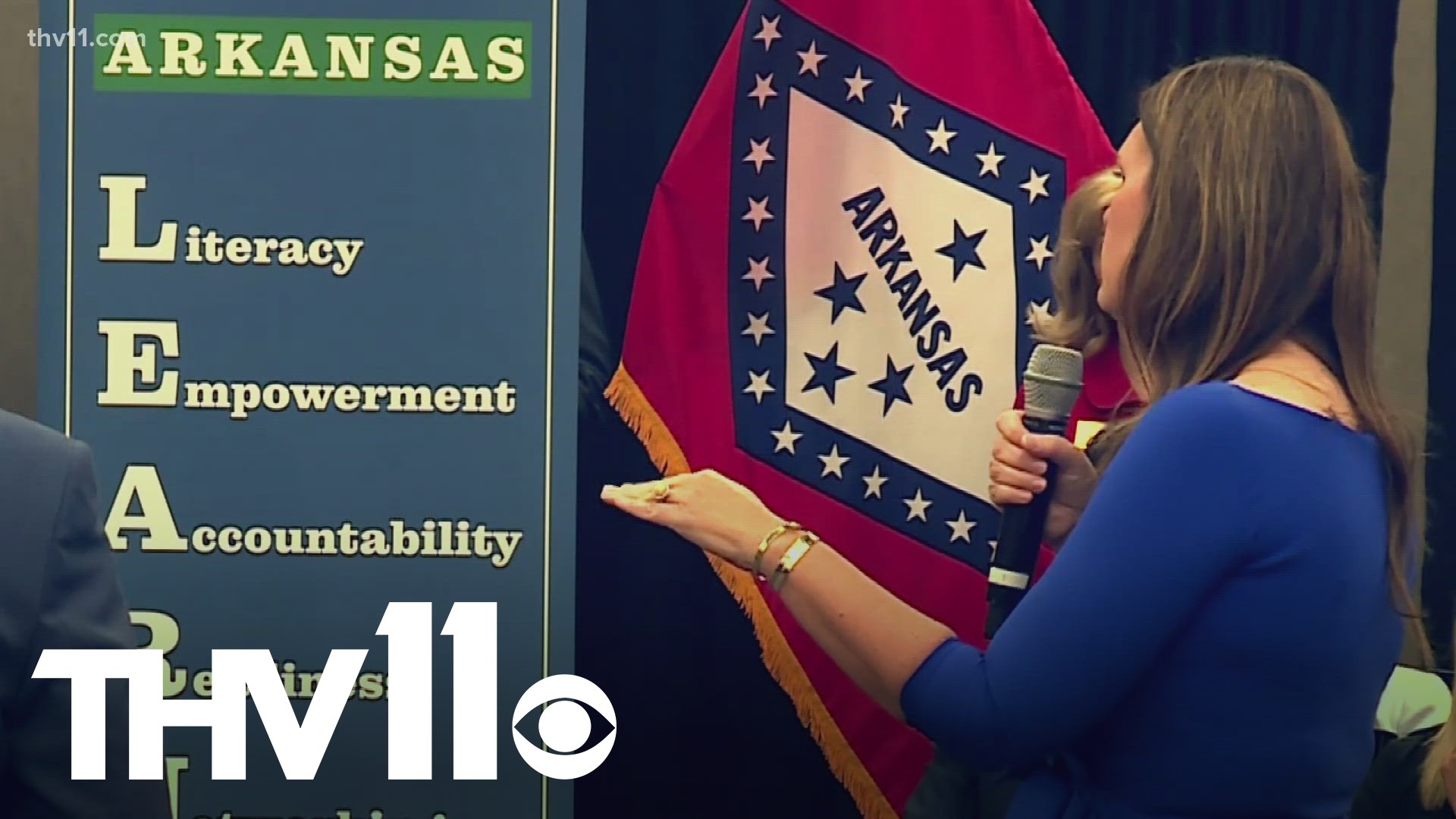LITTLE ROCK, Ark. — An Arkansas Supreme Court ruling has vacated a temporary restraining order that blocked the implementation of the LEARNS Act.
The education law, which has been a cornerstone for Gov. Sarah Huckabee Sanders' first year in office, was challenged in court by a group claiming lawmakers didn't hold a separate vote on the emergency clause.
A Pulaski County judge issued the temporary restraining order saying that school districts couldn't take action based on the law until it went into effect in August.
The lawsuit was issued by parents and the Citizens for Arkansas Public Education and Students (CAPES), a ballot question committee who is looking to repeal the LEARNS Act.
The state appealed the ruling to the Arkansas Supreme Court, arguing that the Pulaski County circuit court "erred in granting appellees' motion for injunctive relief."
The state's highest court agreed in a 5-2 ruling and reversed the order, vacated the temporary restraining order, and sent the lawsuit back to the circuit court.
In its ruling, written by Justice Courtney Rae Hudson, the court agreed with the state that the lawsuit "failed to demonstrate irreparable harm" if the law went into effect immediately and that "any discussion of the parties' arguments regarding likelihood of success would be advisory."
The court also said a claim that CAPES ability to get a referendum on the ballot would be "impaired" is without merit because "their ability to collect signatures" and pursue the petition are not impacted by the lack of a block on the law.
In a concurring opinion, Justice Rhonda Wood addressed the issue with a separate roll-call vote for an emergency clause. Wood said the court couldn't "resolve this issue without exceeding our judicial roles by answering a political question."
She said the Arkansas Constitution gives the legislature authority to determine rules and procedures in both the House and Senate.
"The only way to decide this issue would be to pass judgment on the legislative branch's internal procedural method of recording votes," Wood said. "This is not our role."
Justice Shawn Womack claimed in his concurring opinion that sovereign immunity would bar "nearly the entirety of the appellee's lawsuit." Womack argued that "absent an express constitutional provision," the State of Arkansas will "never be a defendant in any of its courts."
Attorney General Tim Griffin called the ruling a "huge win" for parents, teachers, and children of the state and that the education department "can now get back to implementing the LEARNS Act."
The governor echoed Griffin's statement and said she's spoken with Education Secretary Jacob Oliva, who will "immediately get back to implementing the boldest, most transformational education reform in the country."
"For those playing political games with our children's future, we will fight, and we will win," she said.
In response to the ruling, Veronica McClane with CAPES said they were "disappointed the court didn't examine" the emergency clause and is "looking forward to our day in court for this important matter that impacts every public school child and employee in the state."
"We believe in the state motto Regnant Populus, and will continue our fight so the people can be heard," McClane said.
In a dissent, Chief Justice John Dan Kemp believes the circuit court didn't "abuse its discretion" on granting a temporary restraining order.
"An abuse of discretion is a high threshold that does not simply require error in the circuit court's decision but requires that the circuit court act improvidently, thoughtlessly, or without due consideration," Kemp said.
Kemp argued that failing to hold a separate roll-call vote on the emergency clause, "the General Assembly did not substantially comply with the requirements set forth" in the Arkansas Constitution.
Justice Robin Wynne also dissented.
We will update this article for more information on the ruling.

